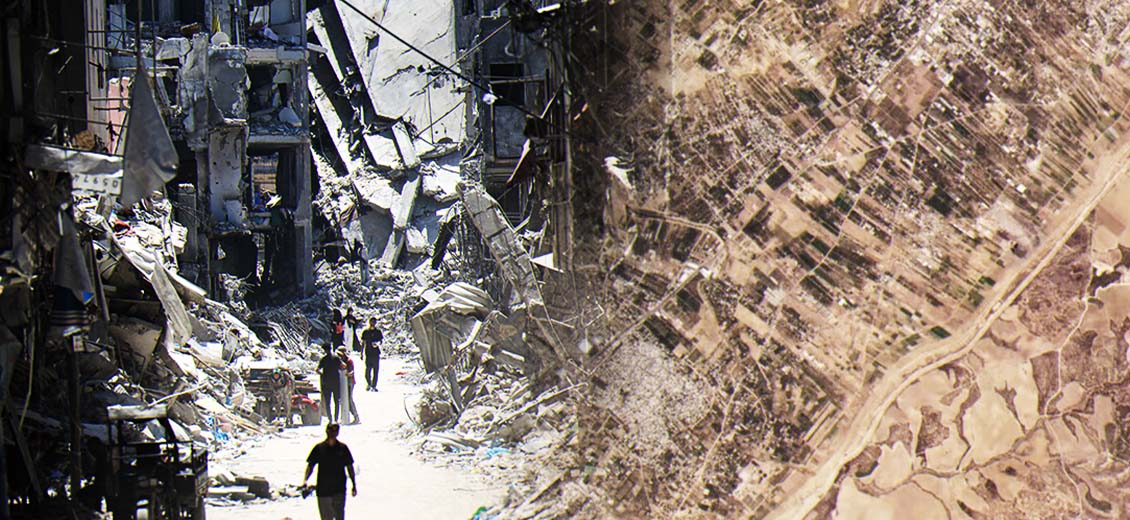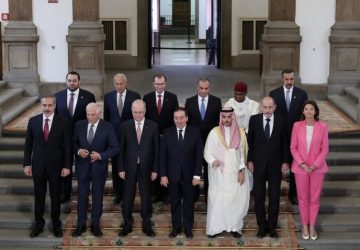Listen to the article
Have the negotiations for a ceasefire in Gaza, currently taking place in Cairo, reached their final hurdle at the Philadelphi Corridor? This question arises as Israeli Prime Minister Benjamin Netanyahu showed relative flexibility by accepting United States President Joe Biden’s request for a partial withdrawal from the corridor during the first phase of a ceasefire agreement and the release of hostages to advance the negotiations. Cairo has agreed to deliver an Israeli proposal to Hamas that includes updated maps of Israeli forces’ deployment in the Philadelphi Corridor, after Washington supported Israel’s stance on a limited retreat of forces from the corridor, placing it under international supervision.
Regardless of Hamas’s response – likely negative – sources familiar with the negotiations assert that the US ceasefire proposal will proceed, either formally or as an informal 46-day truce that may be renewed. Each party to the conflict – Hamas and Israel – is seeking to portray the ceasefire as its victory. Hamas wants to free Gaza by forcing the Israeli army to withdraw, while Israel seeks a ceasefire on its terms to secure the release of its hostages. However, neither side can claim victory. Israel has failed to achieve its goals of eliminating Hamas, while Hamas ends up with a devastated Gaza, forcing it to live in underground tunnels.
The truce negotiations have witnessed fluctuating stances from Hamas since the July 2 proposal, with initial acceptance followed by retreat. The same goes for Israel, especially after Iran and Hezbollah entered the fray with retaliatory strikes for the assassinations of Hamas Politburo chief Ismail Haniyeh in Tehran and top Hezbollah military commander Fouad Shokr in Beirut. This has raised fears of a destructive war in the region, which could negatively affect Joe Biden’s administration ahead of the US elections.
Palestinian circles say that the revised proposal differs from the one the Iran-backed Hamas had previously accepted, as it now aligns with Israeli demands. The recent visit of Qatari Prime Minister Mohammed bin Abdulrahman Al Thani to Iran is seen as a pivotal moment in the negotiations, representing the last chance for all parties to show flexibility and start “piecemeal” talks on individual issues after a ceasefire.
While uncertainty shrouds the fate of the negotiations, with Israel and Hamas trading accusations of obstructing an agreement, tensions in the region remain high. Palestinian sources accuse Netanyahu of stalling to prolong the war until the US elections in November to deny Democrat candidate Kamala Harris any advantage over his “friend” Donald Trump. A Palestinian official commented, “With the end of the Gaza war, Netanyahu’s political career will also end.”
Palestinian sources reveal that Hamas’s delay in responding to the American proposal is due to difficulties in communication with Haniyeh’s successor, Yahya Sinwar. They accuse “Washington of bias towards Israel,” stressing that “America is not an impartial mediator but rather an ally of Israel,” in allusion to US naval and air military buildup in the Mediterranean in support of Israel.
Meanwhile, the region is torn between two competing currents: one led by Israel, a Trump supporter, which relies on superior technology to impose its policies; and the other driven by a weak Biden administration, which has become a “lame duck” and is being pressured and drawn into a war it does not want.
At the same time, the Iran-led “axis of resistance” is unwilling to be dragged into war, given the unfavorable conditions, and it is unprepared to confront US-backed Israel. It rather seeks to resume negotiations with the help of American, Egyptian and Qatari mediators. The axis is complying with Washington’s demand to avoid war, with Iran betting on Harris winning the election to resume nuclear negotiations.
So, who will prevail? Will it be Israel, which seeks to take advantage of the situation to enhance its interests? Or will it be the “axis of resistance”, which may resort to controlled escalation with the hope of resuming negotiations with a new US administration on different terms?





